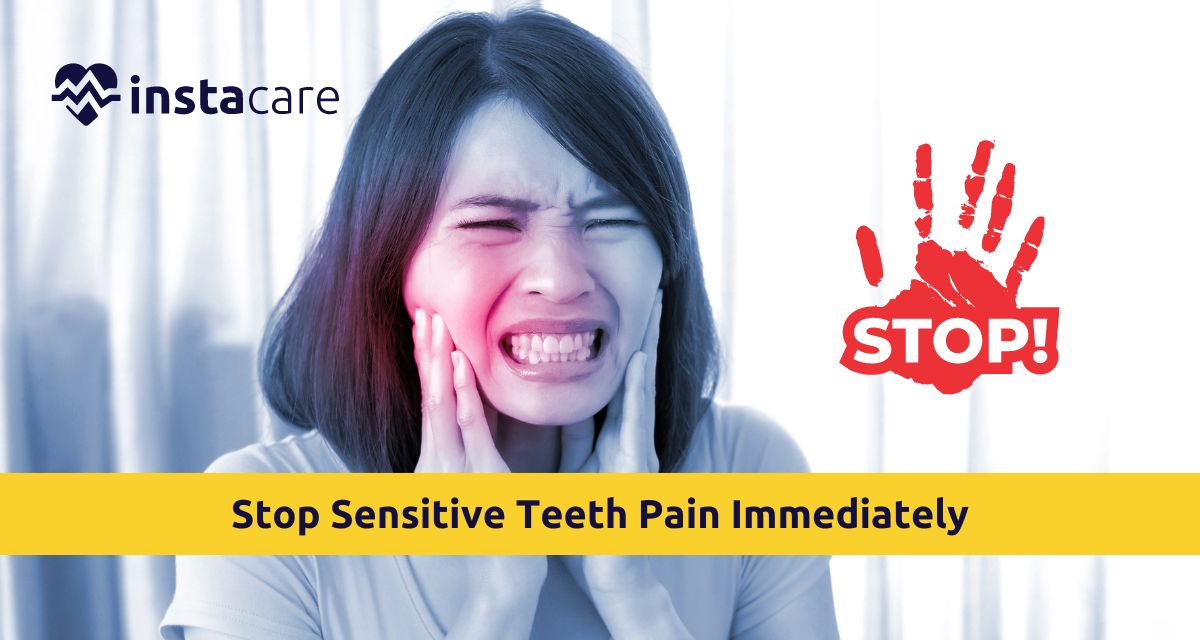Sensitive teeth are literally and figuratively a real pain
in the neck. That piercing, shock-like sensation into your teeth at any
instance you eat or drink something hot, cold, or acidic really does disrupt everything
and is very painful. Luckily, there are certain measures take to alleviate the
discomfort instantly, and at the same time have better control over how
sensitive your teeth are.
Causes
First of all, one needs to know what can cause sensitive teeth. The sensitivity of teeth results mainly due to the exposure of dentin, which is simply the inner layer of your tooth existing beneath the hard and protective enamel. When this dentin gets exposed, the resulting pain could be excruciating. The dominating factors that cause exposed dentin and sensitive teeth are as follows:
Overzealous Brushing
Brushing your teeth too hard or using too hard a toothbrush
wears away the enamel over time. For that matter, the most vicious abrasive
brushing finally wears away this protective layer of enamel to expose sensitive
dentin to possible sudden stimuli from the outside environment. The dentin
contains microscopic tubules running right to the nerve endings in your teeth;
hence, exposed dentin causes fast and sharp pain.
Acidic foods and Drinks
High acidic foods like citrus, tomatoes, Soda beverages, and
wine can be behind worn-out enamel and hence sensitive teeth. The acid in that
kind of food erodes slowly the enamel to reveal the dentin which in turn then
creates pain whenever one consumes some hot, cold, or acidic substances.
Teeth Grinding
Teeth grinding is the mildest form of parafunctional habit
and is also termed as bruxism. This can wear down the enamel over time, thereby
it may result in sensitive teeth. If you grind your teeth, mostly during sleep,
because of constant friction and pressure, that would gradually remove the
enamel, then expose the dentin and thus be sensitive.
Gum Recession
This, therefore, means that as time goes on during the recession, what becomes exposed are the roots of the teeth, hence
sensitivity. On the root surfaces, no hard enamel layer is present, and they
contain much more sensitive dentin to external stimuli than the areas covered
with enamel thus resulting in painful discomfort.
Dental Procedures
Some dental treatments like fillings, crowns, or teeth
whitening of any form can all be causes of temporary sensitivity. The
procedures irritate the nerves in your teeth or make the enamel weak for a
short time and hence become sensitive. It usually improves within a few days or
weeks.
After you have at least ruled out the underlying cause of your sensitive teeth, you will want to work on fixing the problem so that you can get yourself relief from the discomfort and for better dental health.
Strategies for Immediate Relief
If you have acute tooth sensitivity, then there are some
steps to take to get immediate relief. Rub some desensitizing toothpaste on
your teeth. It should be one containing potassium nitrate or strontium
chloride, which block the transmission of pain signals from the exposed dentin
to the nerve endings of the teeth.
Use Some Sensitive Teeth Treatments:
Over-the-counter treatments, sensitivity gels, and pastes
applied directly to the problem teeth can allay associated pain. Most of these products
work with ingredients such as arginine or calcium compounds, which help block
pain signals.
Apply A Cold Compress:
Massage an ice pack or any cold compress across the offended
area. This would help numb out the pain and act against inflammation.
Avoid Stimuli:
Stay away from hot, cold, and acidic foods and beverages
that you know trigger your sensitive teeth. Only take in foods and drinks that
are at about room temperature and more neutral in pH until it pass.
Use Soft-Bristled Brushes:
Non-abrasive strokes with a soft-bristle toothbrush will not
further scratch your enamel and expose more dentin.
Fluoride Treatment:
Your dentist may be in a position to offer you high-concentration fluoride therapy to strengthen and further protect your enamel.
Over-The-Counter Pain Reliever:
Painkillers such as ibuprofen or acetaminophen may be
ingested at times of peak sensitivity to help fight the discomfort.
Long-Term Corrections
Some of the quick relief measures may help for some time;
however, the long-term correction can be given to this problem by rectifying
the actual reason that is causing sensitivity to your teeth. Here are some
long-lasting solutions given as under.
Oral Cleanliness:
Clean your teeth gently with fluoride toothpaste and a soft-bristled
toothbrush. Vigorous brushing and scrubbing should not be used.
Use Desensitizing Mouthwash:
Using a specific mouthwash for rinsing that will contain
potassium nitrate or any other desensitizing agent can help in reducing
sensitivity over time.
Treat Teeth-Grinding:
If you grind your teeth during the night, your dentist can
suggest a custom-made night guard for you or recommend any further treatments
as prescribed by him that would help take care of your teeth to prevent first
enamel wear.
You Can Also Consider Dental Sealants:
Your dentist may be able to coat the exposed dentin with a
thin, protective covering that helps to close off dentin tubules and block pain
signals.
Dental Treatments:
Treating sensitive teeth sometimes requires more extensive
dental work, like fillings, crowns, and even root canals to treat the
underlying issue or pain in your teeth.
Conclusion
Remember always to consult your dentist for the best advice
for your case. Accordingly, embracing both short-term solutions and
long-term treatments will help you overcome this issue and bring back comfort
and quality of life.
Please book an appointment with the Best Dentist in Sialkot, Lahore, Karachi, Islamabad, and all major cities of Pakistan through InstaCare, or call our helpline at 03171777509 to find the verified doctor for your disease.


